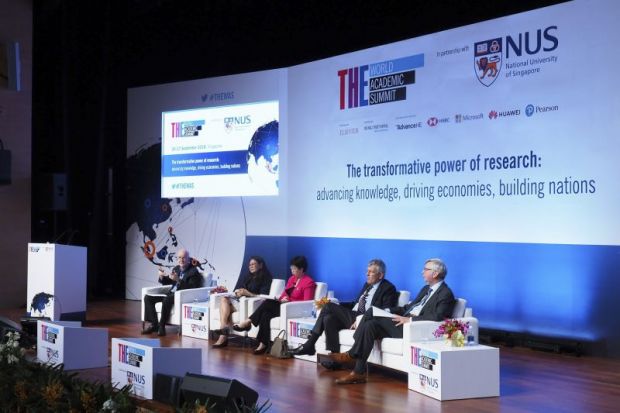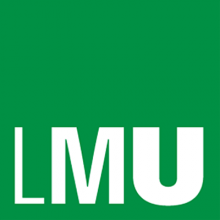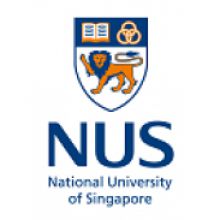An obsession with safeguarding intellectual property is undermining the “virtuous circle” of university-industry collaboration, sector leaders have warned.
Robert Morris, former vice-president, global labs at IBM, told Times Higher Education’s World Academic Summit that intellectual property issues were a “stumbling block” in the translation of university innovations. “Funding is purported to change money into ideas, and intellectual property is about turning ideas back into money,” said Professor Morris, now a professor in the National University of Singapore’s Yong Loo Lin School of Medicine.
“I’d love to say that this circle was an efficient cycle, like the energy cycle or the cell cycle, but it has a lot of friction.”
Professor Morris was part of a panel at the event, held at NUS, examining university partnerships with industry and government. He said that moving people between universities and industry – rather than pursuing patents or licences – was the best way of encouraging innovation and spurring economic impact.
Fellow panellist Bernd Huber, president of LMU Munich, suggested that some intellectual property agreements were irrelevant by the time they were signed.
“At my university we have very good lawyers,” he said. “They are very patient. At a certain point, suddenly an agreement can be signed. You wonder if you are too late because it was such a long time ago [that] you thought of it.”
Professor Huber said that “practical problems” inevitably arose in partnerships between businesses and universities because their interests were “not entirely parallel”.
“For example, scientists want to publish rather quickly. Industry is often interested to put the results on the side, so to say. These are typical conflicts. Companies need time. That’s part of life.”
Stephen Toope, vice-chancellor of the University of Cambridge, suggested that higher education institutions needed to learn to live with tedious intellectual property negotiations. “It’s a big waste of time to try to imagine the perfect IP policy,” he said.
“We just have to understand that transfer is going to be one of the areas where there is constant irritation, and not imagine there’s a perfect policy out there.”
But Professor Toope echoed comments made earlier in the conference by Brian Schmidt, vice-chancellor of Australian National University, in cautioning universities “not to get hung up” on licensing income. “That’s not where the big benefit is,” Professor Toope insisted.
“The big benefit, as Brian emphasised, is in ensuring that you’re seen to be part of a healthy ecosystem. That you’re helping to drive it, working both with industry and government, and you’re not there to get the short-term gain.”
Professor Morris said that in fields such as information technology, universities should “just say ‘no’” to intellectual property negotiations.
“Let’s face it: most software patents are a waste of time,” he told the forum. “There are very few controlling patents. You get into these ridiculous portfolio exchange and compensation models. It slows professors and serious researchers from working together.”
He said patents had their place in fields such as drug research. “But for the majority of what’s being generated today, you can just say ‘no’ and make all the IP open. [You’ll] save six to 12 months in negotiations. Everything [you] do together will be open and publishable.”
Lily Chan, chief executive of NUS Enterprise, the Singapore university’s innovation arm, said that licensing was a long-standing topic of conversation in Singapore. “We were asked, ‘how many patents do you have? How many licences?’” she said.
“I said, ‘You tell me. If you want 100, we’ll produce 100. But where is the economic impact? What is the impact we’re trying to produce?’”
Dr Chan said that intellectual property still featured heavily in forum discussions. “It’s important to have it, but we need to think about it.
“If you have it, you’ve got to make use of it. A patent isn’t like good wine. It doesn’t age very well.”
john.ross@timeshighereducation.com
Register to continue
Why register?
- Registration is free and only takes a moment
- Once registered, you can read 3 articles a month
- Sign up for our newsletter
Subscribe
Or subscribe for unlimited access to:
- Unlimited access to news, views, insights & reviews
- Digital editions
- Digital access to THE’s university and college rankings analysis
Already registered or a current subscriber? Login












